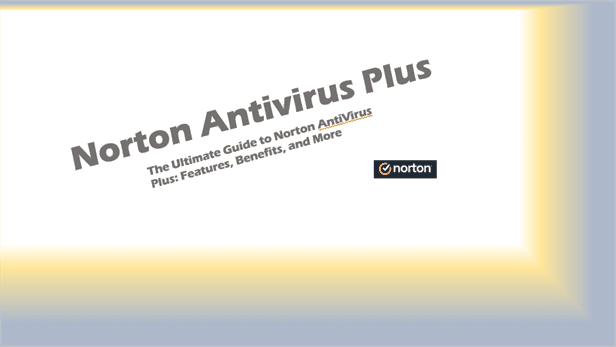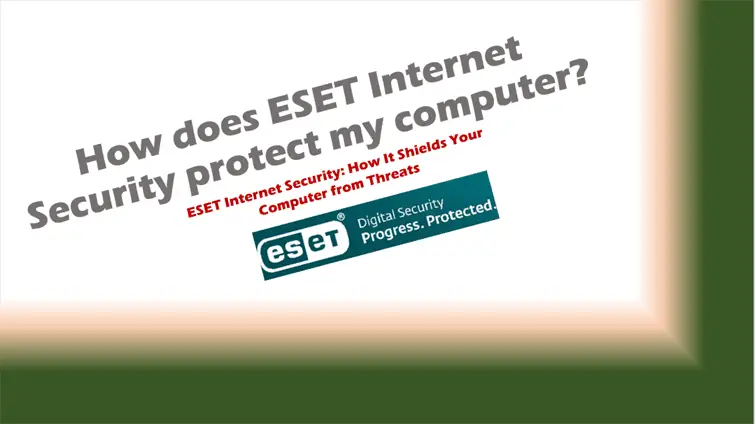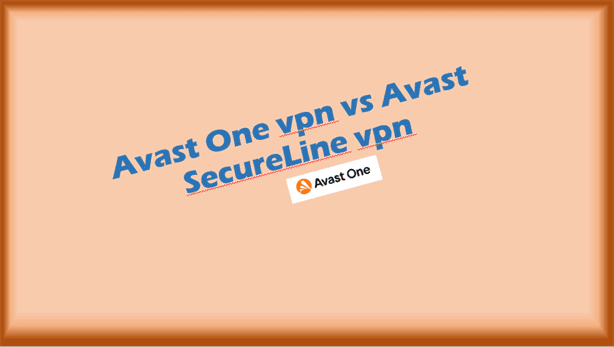The Best Antivirus for Small Businesses in 2025: Protect Your Business from Every Threat
Best antivirus for small businesses.
Cybersecurity is no longer a luxury for small businesses—it’s a necessity.
In the world of small business, every decision matters—especially when it comes to cybersecurity. Choosing the best antivirus for small businesses isn’t just about stopping viruses; it’s about safeguarding your data, protecting your customers, and ensuring business continuity. But with so many options in 2024 / 2025, how do you choose the right one?
Here’s the kicker: The wrong antivirus could cost your business more than you think. Whether it’s ransomware locking you out of crucial files or a malware attack targeting your payment systems, the stakes couldn’t be higher. Let’s dive into the ultimate guide to securing your small business with the best antivirus software available today.
1. Why Small Businesses Need Antivirus Protection

Cyberattacks aren’t just a big business problem. In fact, small businesses are increasingly targeted because they often lack robust cybersecurity measures. Here’s why you can’t afford to skip antivirus software:
- Data protection: Small businesses handle sensitive customer and financial data. A breach can ruin trust.
- Ransomware defense: Hackers are targeting small businesses with ransomware, locking down files until a hefty payment is made.
- Compliance requirements: Many industries demand strict security measures, including antivirus software.
In 2025, ignoring antivirus software is no longer an option. The right solution ensures your small business stays resilient against modern threats. For more on enhancing security, check out affordable VPNs for small businesses.
2. Key Features to Look for in Business Antivirus Software
Not all antivirus software is created equal. When selecting the best antivirus software for small businesses, look for these must-have features:
- Real-time protection: Instant detection and neutralization of malware.
- Endpoint protection: Safeguards for devices like laptops, desktops, and smartphones used by employees.
- Threat protection: Advanced capabilities to combat phishing, ransomware, and zero-day threats.
- Ease of use: Intuitive interfaces make it easy for non-technical staff to manage.
Your antivirus should offer more than basic protection; it needs to fit seamlessly into your business operations.
3. Top Antivirus Options for Small Businesses in 2025
After testing dozens of antivirus solutions, here’s a curated list of the top antivirus software tailored for small businesses:
- Norton Small Business Antivirus: Excellent for comprehensive business security, with features like VPN and USB protection.
- Bitdefender GravityZone Business Security: A robust solution offering endpoint security and real-time antivirus.
- Avast Small Business Cybersecurity Solutions: Great for businesses looking for scalable security software.
For businesses looking for layered protection, combining antivirus with tools like those in best internet security suites can offer comprehensive defense.
4. How to Choose the Best Antivirus for Your Business
When choosing the best antivirus software, consider:
- Number of devices: Ensure the software covers all endpoints, from desktops to mobile devices.
- Level of protection: Look for multi-layered security that includes firewalls and anti-phishing features.
- Cost vs. features: Premium business plans often include added benefits like cloud backup and email protection.
Remember, the best solution is one that aligns with your specific needs and budget.
5. What is Endpoint Protection, and Why Does It Matter?

Endpoints—think laptops, tablets, and smartphones—are gateways to your business network. Endpoint protection is a critical feature in modern antivirus software, ensuring that each device remains secure against threats.
In 2024, next-generation endpoint protection platforms are becoming the gold standard for small business cybersecurity, integrating threat detection, response, and remediation in real-time. This is especially critical for teams working remotely; check out these remote work security tips to bolster endpoint defenses.
6. Norton Small Business Antivirus: Is It Worth It?
Norton Small Business offers a powerful suite of features tailored for small organizations, including:
- Comprehensive protection: Defends against malware, ransomware, and phishing attacks.
- Ease of deployment: Simple setup, even for non-technical teams.
- Business features: Includes secure VPN and device management.
If you’re after reliable antivirus software for small businesses, Norton’s blend of affordability and performance makes it a top contender. For other strong contenders, explore how ESET Internet Security protects computers.
7. Free vs. Premium Business Antivirus: Which One Should You Pick?

While free antivirus software may seem appealing, it often lacks the advanced features needed to protect your business. Here’s the difference:
- Free antivirus: Basic protection against viruses and malware.
- Premium business antivirus: Includes endpoint protection, ransomware defense, and centralized management tools.
For long-term business security, investing in a premium business antivirus solution is a no-brainer. To explore free options, read more about the best free antivirus for Windows 11.
8. The Role of Antivirus Software in Business Security Plans
Antivirus software is the backbone of any solid cybersecurity plan. It provides:
- Threat protection: Shields your business against evolving cyberattacks.
- Compliance assurance: Helps meet regulatory standards for data protection.
- Business continuity: Minimizes downtime caused by security breaches.
Think of your antivirus as the first line of defense in protecting your business and employees.
9. How to Deploy Antivirus Software for Small Businesses
Getting your antivirus solution up and running shouldn’t be complicated. Here’s a quick guide:
- Assess your needs: Determine the number of devices and required features.
- Choose the right software: Select a solution designed for small business security.
- Deploy the software: Follow the vendor’s guidelines for installation and configuration.
A well-deployed antivirus ensures robust endpoint security and peace of mind for business owners.
10. Top Tips for Maintaining Cybersecurity in Small Businesses
Even with the best antivirus software, staying secure requires ongoing effort. Here are top tips:
- Keep software up to date: Regular updates ensure protection against the latest threats.
- Educate employees: Train your team to recognize phishing and other common attacks.
- Invest in layered security: Combine antivirus with firewalls, VPNs, and backup solutions.
Cybersecurity isn’t a one-time fix; it’s a continuous process to keep your business secure. Learn how to protect your online privacy to add an extra layer of defense.
Bullet Point Summary: Key Takeaways
- Small businesses need antivirus software to protect against ransomware, phishing, and data breaches.
- Look for features like endpoint protection, threat detection, and ease of use.
- Top antivirus solutions for 2024 include Norton, Bitdefender, and Avast.
- Free antivirus software may suffice for individuals, but premium business plans offer better protection.
- Deploy antivirus software correctly and keep it updated to ensure maximum security.
- Combine antivirus with employee training and layered cybersecurity measures for best results.
Choosing the best antivirus for small businesses isn’t just a purchase; it’s an investment in the future of your company. With the right tools and strategies, you can protect your business and employees from every digital threat 2025 has to offer.
FAQs – Best Antivirus for Small Businesses
What is the best antivirus for small businesses?
The best antivirus for small businesses depends on your specific needs, but some top contenders in 2024 include:
Malwarebytes for Teams: Offers lightweight yet powerful protection against malware and ransomware, specifically designed for small teams. Source: Malwarebytes Official
Norton Small Business Antivirus: Known for its comprehensive endpoint protection and ease of deployment. Source: Norton Official
Bitdefender GravityZone Business Security: A robust solution offering advanced threat protection.
Avast Business Antivirus: Ideal for scalable security solutions tailored to small business needs. Source: Avast Official
These options provide multi-layered protection, ease of use, and scalable solutions suitable for small businesses.
What antivirus do most companies use?
Most companies, including small and medium-sized businesses, use antivirus solutions that offer robust endpoint protection and centralized management. Popular choices include:
Symantec Endpoint Protection (Norton): Frequently used by businesses for its advanced security features.
McAfee Total Protection for Business: A trusted name offering tailored business solutions.
Kaspersky Endpoint Security: Popular for its real-time threat detection and multi-device support.
The choice often depends on company size, IT infrastructure, and specific security requirements. Source: Kaspersky Official
What is the difference between Norton 360 and Norton Small business?
Norton 360: Primarily designed for individual and family use. It includes features like VPN, cloud backup, and identity protection tailored for personal devices.
Norton Small Business: Aimed at businesses, offering device management, scalable licenses, and tailored endpoint protection for up to 20 devices.
While Norton 360 focuses on personal security, Norton Small Business provides the tools needed to protect business networks and employees. Source: Norton Small Business Overview
Do businesses need antivirus?
Absolutely. Businesses, regardless of size, need antivirus to:
Protect sensitive data: Prevent data breaches that could compromise customer and company information.
Defend against ransomware: Safeguard files from being encrypted and held for ransom.
Ensure compliance: Meet industry standards and regulations for data security.
Without antivirus, businesses risk financial losses, reputational damage, and operational downtime.






